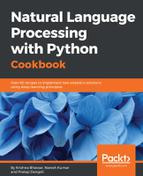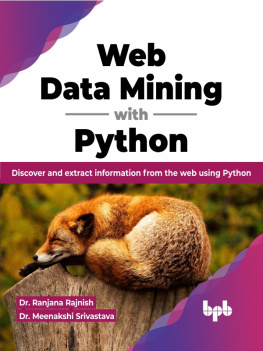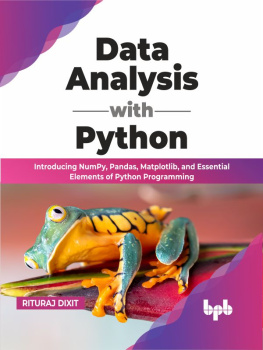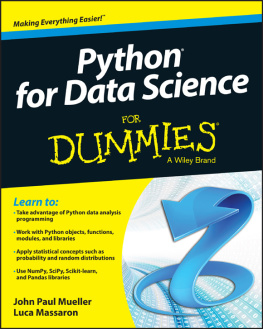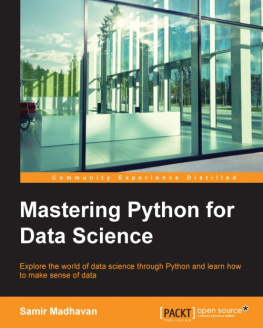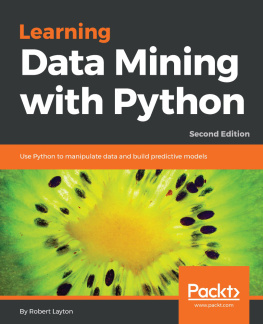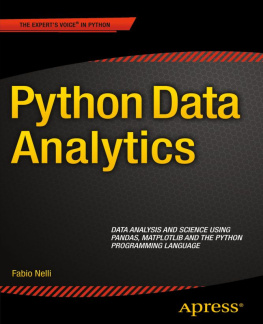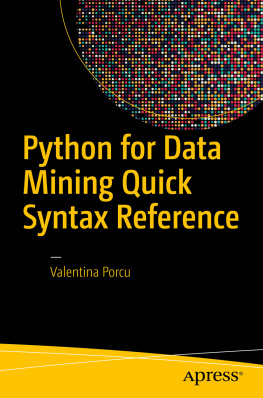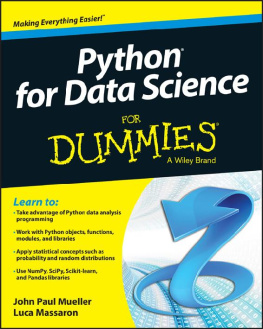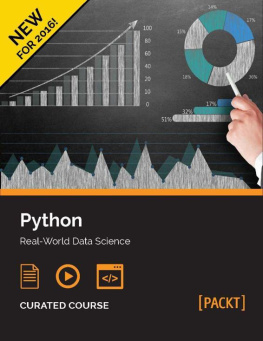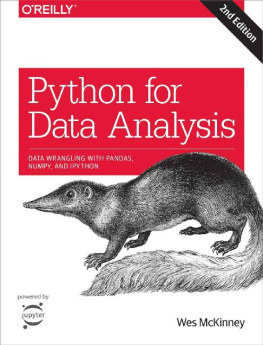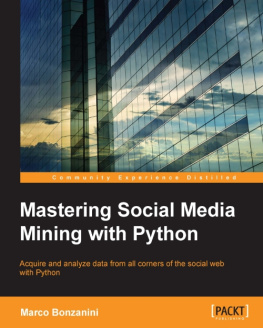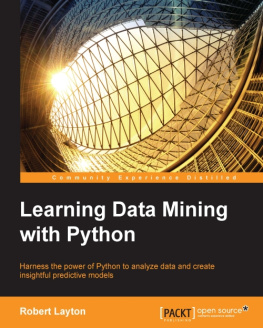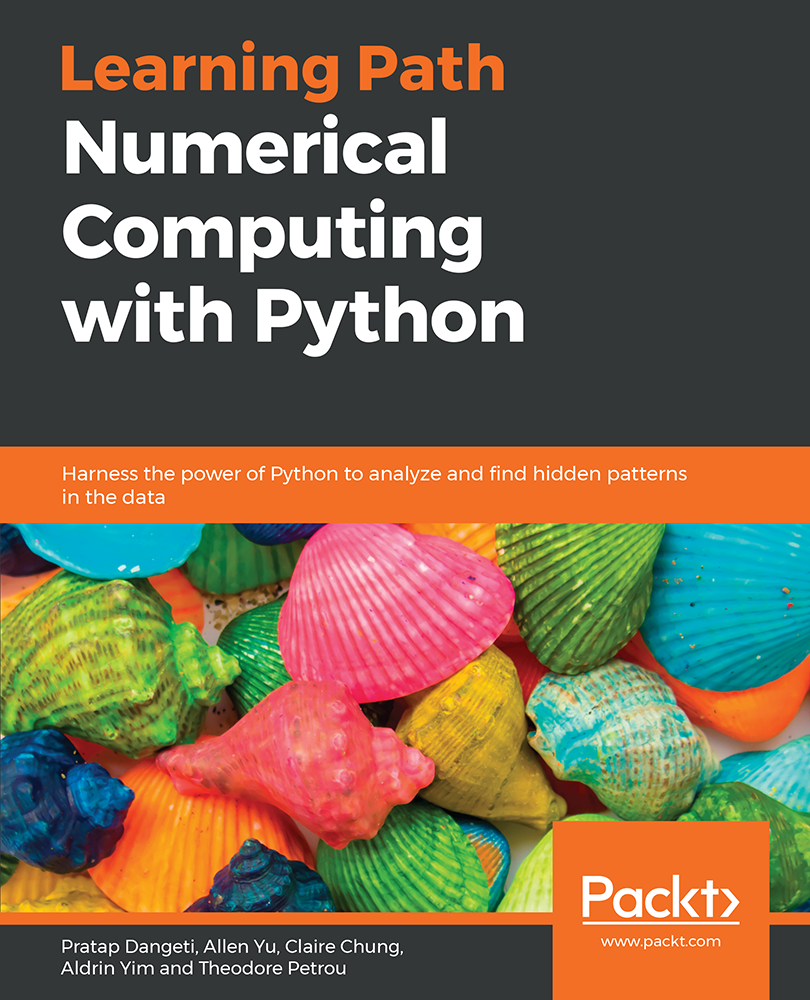Pratap Dangeti - Numerical Computing with Python: Harness the power of Python to analyze and find hidden patterns in the data
Here you can read online Pratap Dangeti - Numerical Computing with Python: Harness the power of Python to analyze and find hidden patterns in the data full text of the book (entire story) in english for free. Download pdf and epub, get meaning, cover and reviews about this ebook. year: 2018, publisher: Packt Publishing, genre: Romance novel. Description of the work, (preface) as well as reviews are available. Best literature library LitArk.com created for fans of good reading and offers a wide selection of genres:
Romance novel
Science fiction
Adventure
Detective
Science
History
Home and family
Prose
Art
Politics
Computer
Non-fiction
Religion
Business
Children
Humor
Choose a favorite category and find really read worthwhile books. Enjoy immersion in the world of imagination, feel the emotions of the characters or learn something new for yourself, make an fascinating discovery.

- Book:Numerical Computing with Python: Harness the power of Python to analyze and find hidden patterns in the data
- Author:
- Publisher:Packt Publishing
- Genre:
- Year:2018
- Rating:5 / 5
- Favourites:Add to favourites
- Your mark:
Numerical Computing with Python: Harness the power of Python to analyze and find hidden patterns in the data: summary, description and annotation
We offer to read an annotation, description, summary or preface (depends on what the author of the book "Numerical Computing with Python: Harness the power of Python to analyze and find hidden patterns in the data" wrote himself). If you haven't found the necessary information about the book — write in the comments, we will try to find it.
Understand, explore, and effectively present data using the powerful data visualization techniques of Python
Key Features- Use the power of Pandas and Matplotlib to easily solve data mining issues
- Understand the basics of statistics to build powerful predictive data models
- Grasp data mining concepts with helpful use-cases and examples
Data mining, or parsing the data to extract useful insights, is a niche skill that can transform your career as a data scientist Python is a flexible programming language that is equipped with a strong suite of libraries and toolkits, and gives you the perfect platform to sift through your data and mine the insights you seek. This Learning Path is designed to familiarize you with the Python libraries and the underlying statistics that you need to get comfortable with data mining.
You will learn how to use Pandas, Pythons popular library to analyze different kinds of data, and leverage the power of Matplotlib to generate appealing and impressive visualizations for the insights you have derived. You will also explore different machine learning techniques and statistics that enable you to build powerful predictive models.
By the end of this Learning Path, you will have the perfect foundation to take your data mining skills to the next level and set yourself on the path to become a sought-after data science professional.
This Learning Path includes content from the following Packt products:
- Statistics for Machine Learning by Pratap Dangeti
- Matplotlib 2.x By Example by Allen Yu, Claire Chung, Aldrin Yim
- Pandas Cookbook by Theodore Petrou
- Understand the statistical fundamentals to build data models
- Split data into independent groups
- Apply aggregations and transformations to each group
- Create impressive data visualizations
- Prepare your data and design models
- Clean up data to ease data analysis and visualization
- Create insightful visualizations with Matplotlib and Seaborn
- Customize the model to suit your own predictive goals
If you want to learn how to use the many libraries of Python to extract impactful information from your data and present it as engaging visuals, then this is the ideal Learning Path for you. Some basic knowledge of Python is enough to get started with this Learning Path.
Table of Contents- Journey from Statistics to Machine Learning
- Tree-Based Machine Learning Models
- K-Nearest Neighbors and Naive Bayes
- Unsupervised Learning
- Reinforcement Learning
- Hello Plotting World!
- Visualizing Online Data
- Visualizing Multivariate Data
- Adding Interactivity and Animating Plots
- Selecting Subsets of Data
- Boolean Indexing
- Index Alignment
- Grouping for Aggregation, Filtration, and Transformation
- Restructuring Data into a Tidy Form
- Combining Pandas Objects
Pratap Dangeti: author's other books
Who wrote Numerical Computing with Python: Harness the power of Python to analyze and find hidden patterns in the data? Find out the surname, the name of the author of the book and a list of all author's works by series.

